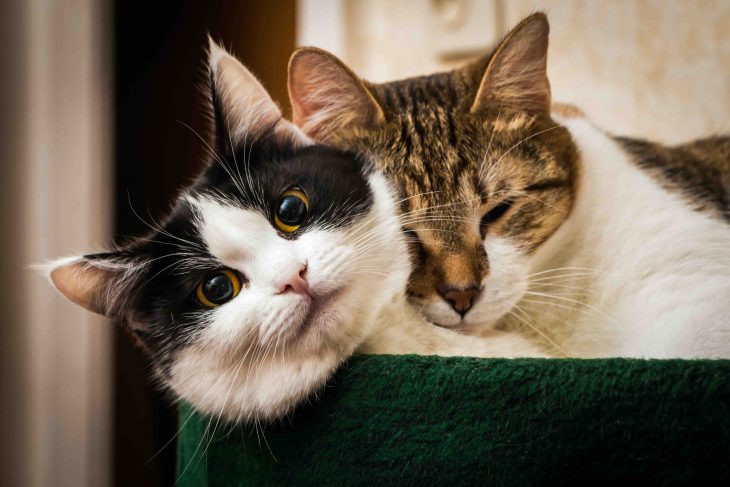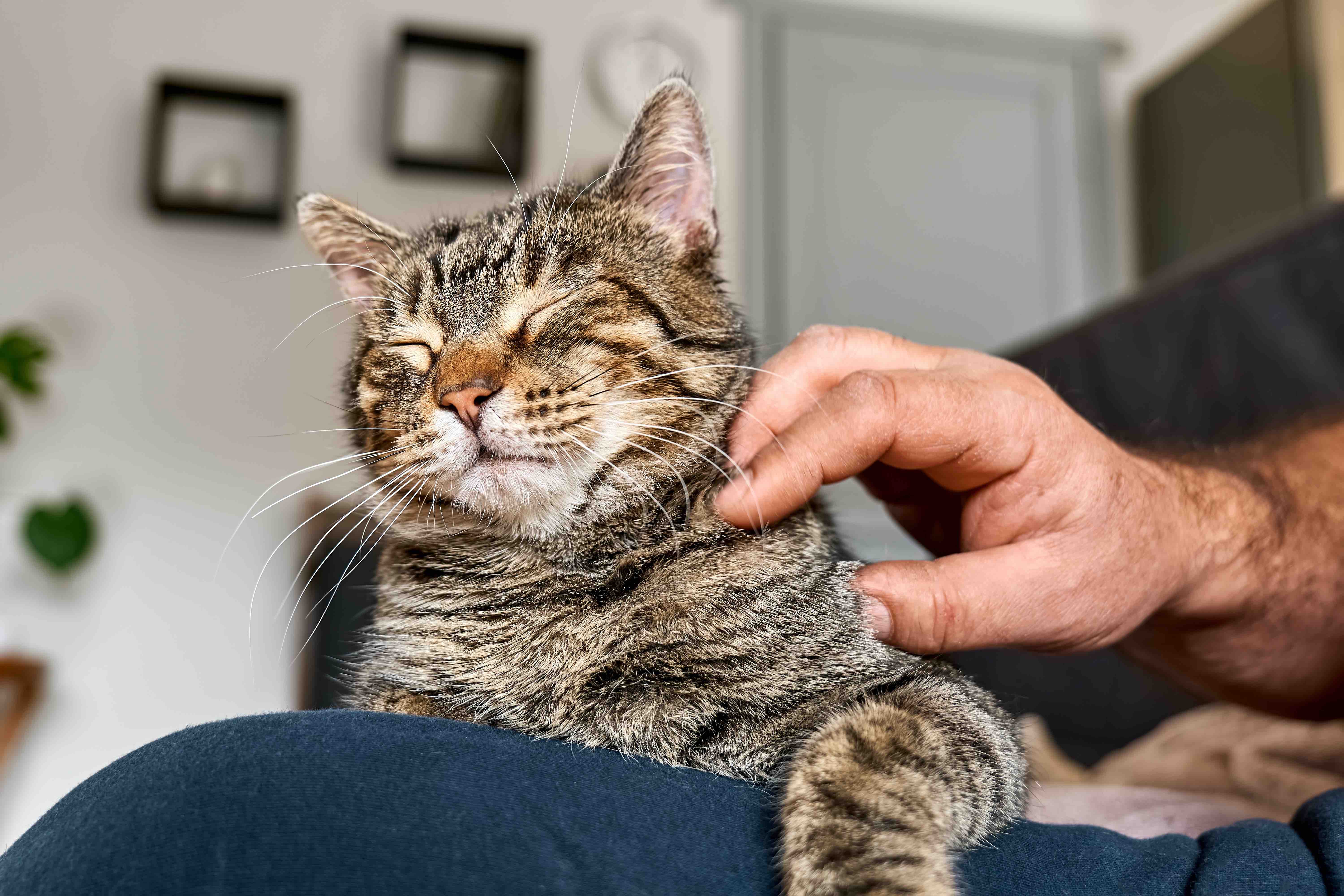
Male cats, with their enigmatic charm and distinct characteristics, have fascinated and captivated humans for centuries. These feline companions bring joy, companionship, and a touch of mystery into our lives. In this article, we explore 19 fascinating facts about male cats, shedding light on their behavior, traits, and intriguing idiosyncrasies. So, let’s embark on a journey into the enigmatic world of male felines.
Male Cats Are Called “Tomcats”
They are commonly referred to as “tomcats” or simply “toms.” This terminology has its roots in Old English, where “tom” was used to describe a male animal, particularly a male cat.
Male Cats Can Be Larger Than Female Cats
In many cat breeds, male cats tend to be larger in size compared to their female counterparts. This size difference is more pronounced in certain breeds, such as Maine Coons and Norwegian Forest Cats. However, there are exceptions and individual variations within breeds can occur.
Male Cats Are Known for Their “Mane”
While the term “mane” is typically associated with lions, male cats of certain breeds, such as the Maine Coon and the Ragdoll, can develop a thick and lush collar of fur around their neck, resembling a majestic mane.
Male Cats May Spray to Mark Territory
One common behavior observed in male cats is spraying, especially when they reach sexual maturity. Spraying involves the release of urine onto vertical surfaces as a way to mark their territory and communicate with other cats. Neutering can help reduce or eliminate this behavior.
Male Cats Can Be More Territorial
Male cats, especially unneutered ones, can exhibit more territorial behaviors compared to female cats. They may mark their territory more frequently, engage in confrontations with other cats, and display territorial aggression to establish dominance.
Male Cats Can Be Affectionate Companions

Despite their reputation for independence, male cats can be incredibly affectionate and loving companions. They often form strong bonds with their human caretakers, enjoying cuddling sessions, head rubs, and lap time.
Male Cats Are Prone to Wander
Unneutered male cats have a natural instinct to roam and explore their surroundings in search of a mate. This wandering behavior increases the risk of accidents, injuries, and exposure to infectious diseases. Neutering can help reduce the urge to wander.
Male Cats Are More Prone to Fights
Due to their territorial nature, male cats, especially intact ones, are more likely to engage in fights with other male cats. These fights can result in injuries and abscesses. Neutering can significantly reduce aggressive behaviors and the likelihood of fighting.
Male Cats Can Father Litters from Different Queens
Male cats have the remarkable ability to father litters from multiple queens during a breeding season. This reproductive capacity highlights their role in perpetuating the feline population and passing on their genetic lineage.
Male Cats Can Experience “False Pregnancy”
While it is more common in female cats, male cats can also display signs of pseudopregnancy or “false pregnancy.” This condition is characterized by behavioral and physical changes that mimic pregnancy, including nesting behaviors and mammary gland development.
Male Cats Are Prone to Certain Health Issues
Male cats, especially those who have not been neutered, are more susceptible to certain health issues. These can include testicular tumors, prostatic disease, and urinary tract problems. Neutering can help prevent or reduce the risk of such conditions.
Male Cats Have a Distinctive Voice
Male cats often possess a deeper and more resonant voice compared to their female counterparts. Their vocalizations can range from gentle purring and chirping to loud meowing during mating season or when seeking attention.
Male Cats May Have Spurred Calico Coat
While calico cats are predominantly female due to the genetic makeup responsible for their unique coat pattern, male calico cats do exist. However, male calicos are rare, occurring in approximately 1 in 3,000 calico cats, and they are usually sterile.
Male Cats Can Be Gentle Playmates
Male cats can exhibit gentle play behaviors, especially during their kittenhood. They may engage in mock battles, chase toys, and pounce with incredible agility and coordination, displaying their innate hunting instincts.
Male Cats Can Form Strong Bonds with Other Cats
Contrary to the belief that male cats are solitary creatures, they are capable of forming deep and lasting friendships with other cats. Male littermates or cats raised together from a young age often develop strong bonds and exhibit social behaviors within their feline group.
Male Cats Are Prized for Their Unique Coat Colors and Patterns
Certain coat colors and patterns, such as the striking orange tabby and the captivating tuxedo pattern, are more commonly found in male cats. These distinctive coat variations add to the allure and visual appeal of male felines.
Male Cats Have Playful and Mischievous Personalities

Male cats are renowned for their playful and mischievous nature. They often retain their youthful energy well into adulthood, delighting their human companions with acrobatic leaps, daring explorations, and amusing antics.
Male Cats Are Sensitive to Changes in Routine
Male cats can be sensitive to changes in their environment and routine. They may exhibit signs of stress or anxiety when faced with alterations in their territory or disruptions to their daily schedule. Providing a stable and nurturing environment can help alleviate these issues.
Male Cats Bring Joy and Companionship
Above all, male cats bring immense joy, companionship, and a sense of fulfillment to their human caretakers. Their unique personalities, endearing quirks, and unwavering loyalty create a bond that enriches our lives in immeasurable ways.
Final Word
Delve into the captivating world of male cats and discover the wonders they bring into our lives. From their intriguing behaviors to their unique traits, these enigmatic felines never cease to amaze and entertain. Embrace the joy of sharing your life with a male cat, and cherish the unforgettable moments you’ll create together.
Frequently Asked Questions (FAQs)
Should I neuter my male cat?
Neutering your male cat has numerous benefits, including reducing the risk of certain health issues, preventing unwanted behaviors like spraying and roaming, and contributing to population control. Consult with your veterinarian to determine the best course of action for your cat.
Are male cats more affectionate than females?
Each cat, regardless of gender, has its own unique personality. While male cats can be affectionate, so can females. The level of affection may vary from cat to cat, depending on their individual traits and experiences.
Can male cats be indoor-only pets?
Yes, male cats can thrive as indoor-only pets. Indoor environments provide safety from outdoor hazards and reduce the risk of fighting, accidents, and exposure to diseases. Providing ample enrichment, playtime, and mental stimulation can ensure a happy and fulfilling life for indoor male cats.
Do male cats bond better with male or female humans?
Male cats do not necessarily have a preference for bonding with male or female humans. Their ability to form strong bonds depends on individual personality traits, experiences, and the quality of care and interaction provided by their human companions.
At what age should I neuter my male cat?
The appropriate age for neutering a male cat can vary, but it is generally recommended to neuter them between 4 to 6 months of age. Consult with your veterinarian for the best timing based on your cat’s health, breed, and development.
Was this page helpful?
Our commitment to delivering trustworthy and engaging content is at the heart of what we do. Each fact on our site is contributed by real users like you, bringing a wealth of diverse insights and information. To ensure the highest standards of accuracy and reliability, our dedicated editors meticulously review each submission. This process guarantees that the facts we share are not only fascinating but also credible. Trust in our commitment to quality and authenticity as you explore and learn with us.
